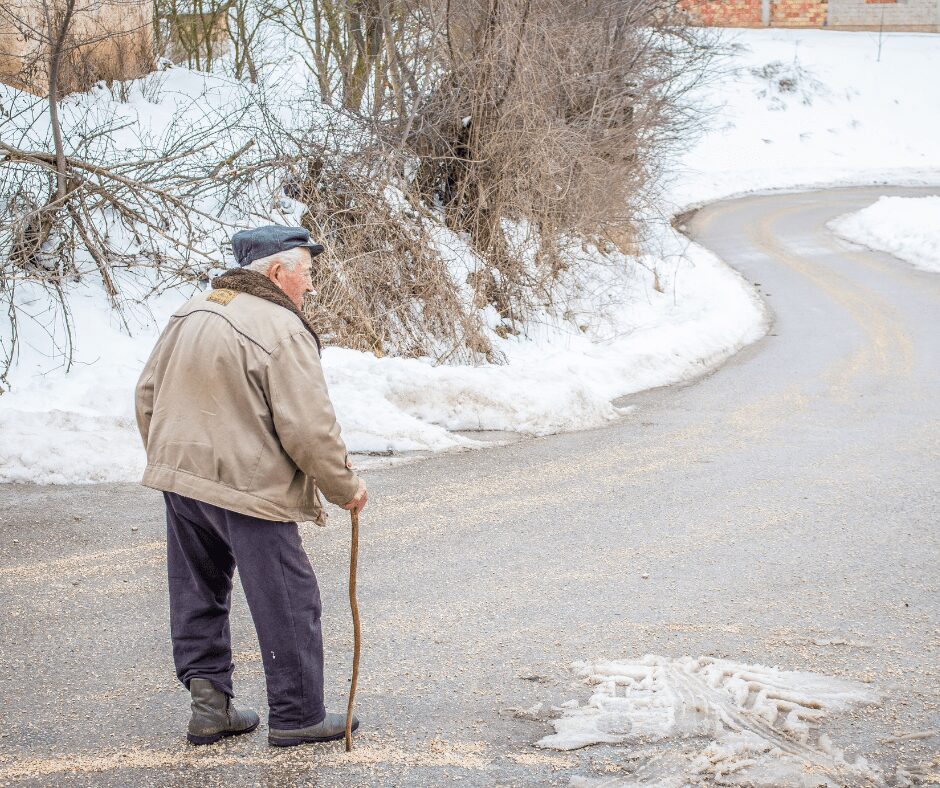Here in New Hampshire, we experience all four seasons, and winter can be one of the most dangerous for the elderly. Beyond the obvious risks brought about by cold temperatures, winter can bring many hazards for our aging loved ones. See just a few common risks and how to keep your loved one safe during the winter below.
Stay Out of the Cold
Extremely cold temperatures can be taxing for anyone, but the risk is even higher for the elderly. Seniors experience hypothermia more quickly and more severely than younger people. Hypothermia can result in confusion, memory loss, loss of consciousness, and even death. Make sure your loved one bundles up if they need to go outside and keep those times to a minimum. And don’t forget to keep interior temperatures higher; we recommend keeping the thermostat set at 65 degrees or warmer.
Keep the Driveway Clear
According to the CDC, “over 800,000 patients a year are hospitalized because of a fall injury.” Falls can have serious consequences for seniors, like broken bones, fractures, and even head injuries. In the winter, keep your elderly loved one’s driveway clear of snow and ice. If they need to go out, clear a pathway from their doorstep to their vehicle. Always keep road salt on hand and pay special attention to stairs. Plus, equip them with shoes or boots with lots of traction!
Get Vaccinated
While you may already understand the dangers of COVID and the necessity of getting vaccinations and boosters, keep in mind that all diseases carry more risks for the elderly. Statistics show that our risk for hospitalization from the flu increases as we age. Stay up to date on all current COVID boosters and make sure you and your loved one receive annual flu vaccinations.
Keep Up with Vitamins & Supplements
Since we spend more time indoors and days are shorter in the winter, we tend to get less Vitamin D and calcium. Your loved one’s primary care provider should approve any vitamins and supplements they’re taking, so be sure to mention this at your loved one’s next appointment. You and their primary care provider can ensure they’re getting the right nutrition to handle the challenges of winter.
Stock Up for a Snowy Day
New Hampshire winters can throw a handful of storms our way each year. Consider beforehand what your loved one will need if they get snowed in and ensure they are fully stocked up. Suggestions include canned or boxed food, medications, blankets, and bottled water.
Check In Regularly
Frequently touching base with your loved one can help you identify and deal with any issues sooner, such as a slip and fall. Furthermore, winter can bring about feelings of isolation and loneliness. Phone calls and visits can help your loved one feel less alone.
At Forestview Manor, we understand the challenges faced by seniors in New Hampshire. Whether you need more tips on caring for your loved one or would like to learn more about our independent and assisted living community, we welcome you to contact us today.

